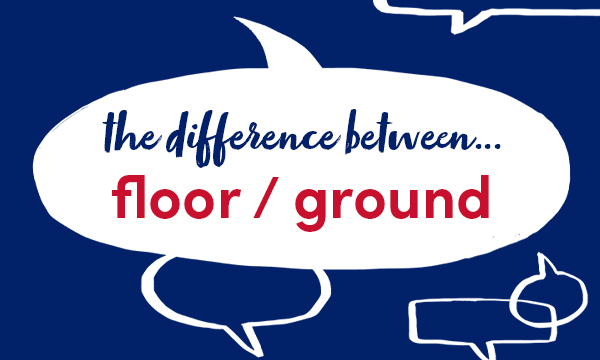This week we are looking at two words which are sometimes confused by learners of English: floor and ground.
floor

The floor of a room is the flat part you walk on.
The book fell to the floor.
They were sitting on the floor.
A floor of a building is all the rooms on a particular level.
I went up the stairs to the third floor.
You say that something is on a particular floor.
My office is on the second floor.
Be careful! Don’t say that something is ‘in’ a particular floor.
ground

You usually call the surface of the Earth the ground rather than the ‘floor’.
He set down his backpack on the ground.
The ground was very wet and muddy.
However, the surface of the Earth in a forest is sometimes referred to as the forest floor, and the land under the sea is sometimes called the sea floor or the ocean floor.
The forest floor is not rich in vegetation.
Some species are mainly found on the ocean floor.
Find out more in our English Usage article.
This blogpost is based on Collins COBUILD English Usage, written for learners of English. For more examples of English usage points, please visit: https://grammar.collinsdictionary.com/english-usage.
All opinions expressed on this blog are those of the individual writers, and do not necessarily reflect the opinions or policies of Collins, or its parent company, HarperCollins.



